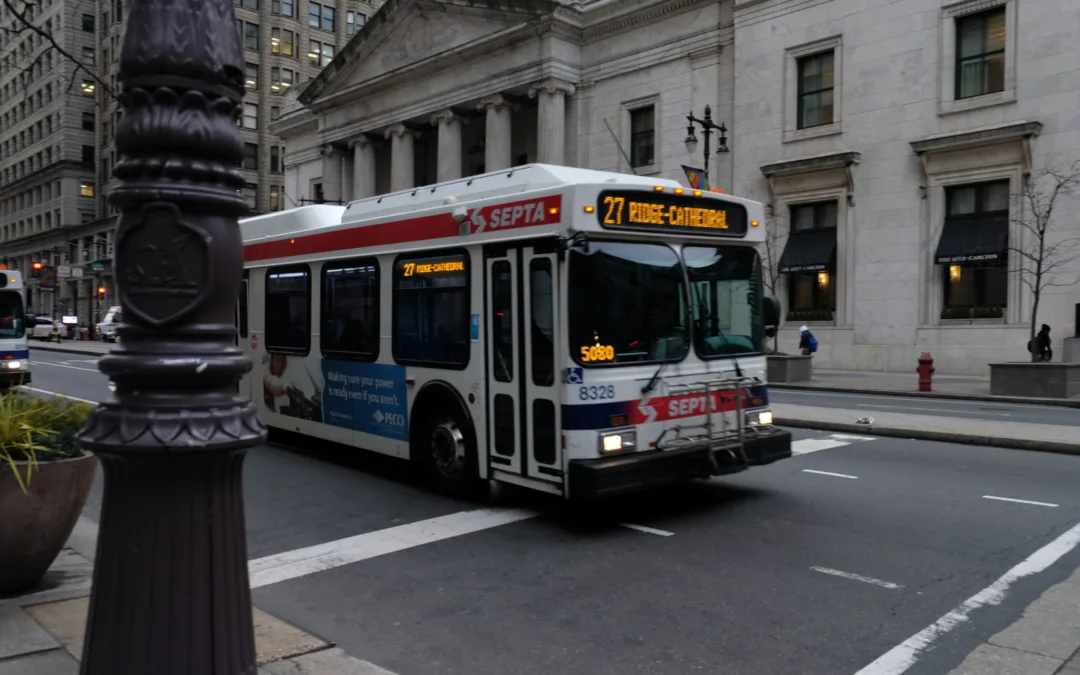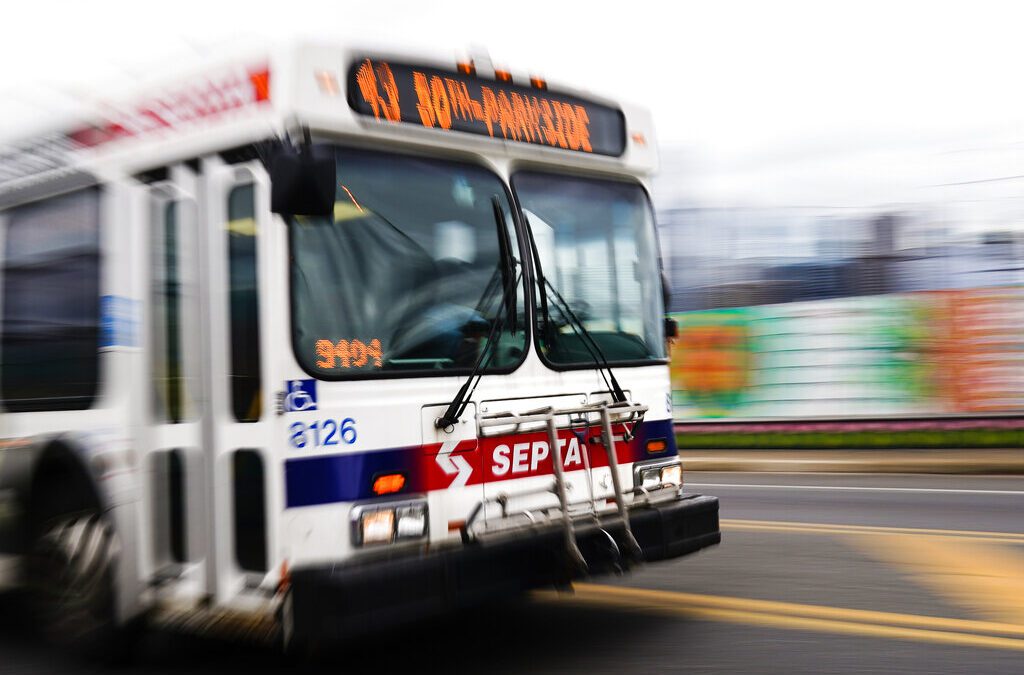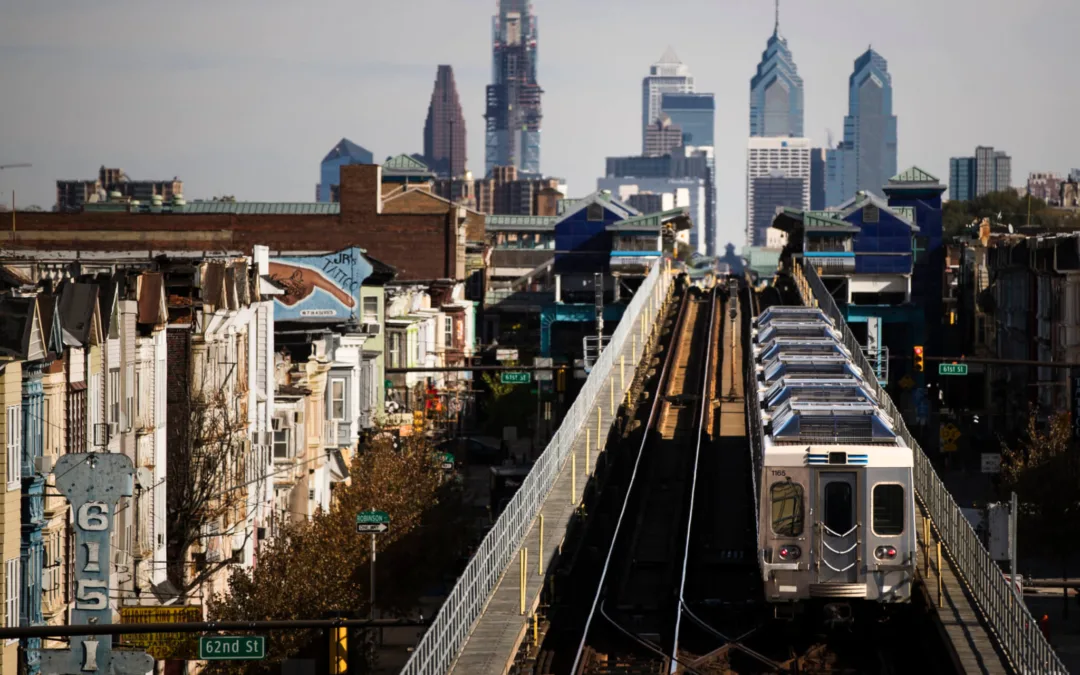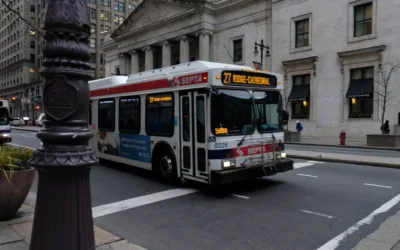
Aerial Perspective Over Downtown City Center York Pennsylvania at Sunset. (Photo: Chris Boswell / Getty Images)
Residents in York City and Hanover Township wanted broadband expansion in their communities, but anti-5G conspiracy theorists have delayed the wifi expansion for months.
Conspiracy theorists who believe that 5G internet access causes severe health effects derailed broadband expansion in York City and Hanover Township, according to the York Dispatch.
The York Dispatch originally reported in December that a group of conspiracy theorists were granted a 15-minute meeting with the York County Commissioners and other government and business leaders from the region.
However, that meeting may have violated that state’s Sunshine Act because the meeting wasn’t properly advertised.
“The fact that the call took place creates potential Sunshine Act liability, not the fact that the call wasn’t released,” Melissa Melewsky, a media law counselor with the Pennsylvania News Media Association, told the outlet.
“This was, apparently, a quorum discussion of agency business that took place outside a public meeting. The call is the Sunshine Act issue; releasing the call at a later date would not fix the Sunshine Act problem.”
The meeting included a short presentation made by the anti-wifi activists and following the presentation York County Commissioner Doug Hoke thanked the conspiracy theorists for this new information.
“I appreciate the information,” Hoke said. “As I said before, this isn’t my area of expertise but it’s interesting to learn about this.”
At one point, Jolie Diane, who gave the anti-5G presentation, was presented with credible evidence from Silas Chamberlain, the county’s expert that wifi from the York Economic Alliance, doesn’t cause adverse health effects. She responded by doubting the validity of science according to the York Dispatch.
“We don’t have to stand for having these outdated guidelines, we can put in something now to protect us,” she said. “Otherwise, we’re going to get more violence, we’re going to get more mental health issues. That’s what is associated with the brain.”
The anti-wifi conspiracy theorists were successful in delaying broadband expansion in York City and Hanover for the foreseeable future. The plan was to place wifi emitters in York and Hanover to reduce barriers according to Chamberlin.
“The idea of the Wi-Fi network was simply to provide base-level service in the area where people face many barriers,” Chamberlain said. “When we did our outreach to stakeholders in the city of York and Hanover and surrounding areas … they were asking for this. This wasn’t something that we came up with in a vacuum.”
Support Our Cause
Thank you for taking the time to read our work. Before you go, we hope you'll consider supporting our values-driven journalism, which has always strived to make clear what's really at stake for Pennsylvanians and our future.
Since day one, our goal here at The Keystone has always been to empower people across the commonwealth with fact-based news and information. We believe that when people are armed with knowledge about what's happening in their local, state, and federal governments—including who is working on their behalf and who is actively trying to block efforts aimed at improving the daily lives of Pennsylvania families—they will be inspired to become civically engaged.


50,000 students rely on SEPTA in Philadelphia. They need to be prepared for service cuts.
Without a budget deal, SEPTA cut services across all buses, subways, and trolleys by 20% starting on Sunday. As Philadelphia students prepare to...

SEPTA funding crisis could affect central Pennsylvania’s Amtrak service, congressman warns
Rep. Brendan Boyle said the national passenger rail agency would lose $71 million if transit funding crisis persists A crucial passenger rail link...

SEPTA moving forward with service cuts, thanks to budget stalemate
Barring a last-minute deal, the mass transit agency, which serves 800,000 riders daily in the greater Philadelphia region, will institute a 20%...

We asked, you answered: Where do you stand on funding for public transit in Pennsylvania?
Around 1 million Pennsylvanians rely on mass transit daily in urban, suburban, and rural regions. In the Philadelphia region, where SEPTA serves...

Pennsylvania House makes last-ditch effort to stave off cuts at Philadelphia’s public transit agency
The bill—which includes funding for highways, too—increases aid for transit agency operations by $292 million, or about 25% more, with the lion’s...





